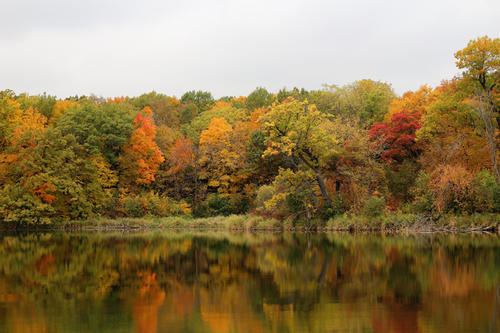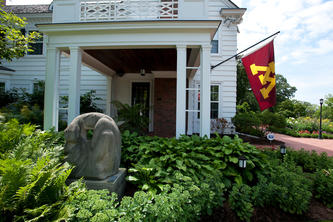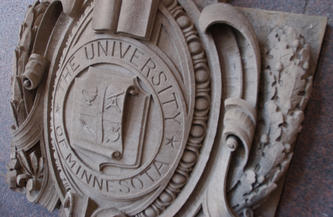
The University of Minnesota’s Resilient Communities Project (RCP) today announced Ramsey County and Scott County have been selected as its community partners for the 2018–2019 academic year. Due to both finalists’ strong proposals, it marks the first time in its six-year history the program will assist two partners in a given year.
RCP, housed within the U of M’s Center for Urban and Regional Affairs, seeks to connect students’ innovation, ingenuity, and fresh perspectives with local government agencies to learn about their needs, conduct research, and develop solutions. In the coming months, staff will define the scope and purpose of individual projects before matching them with courses offered at the University in fall 2018 and spring 2019.
“We’re very excited about our upcoming collaborations with Scott and Ramsey Counties,” said RCP’s Director Mike Greco. “Each community brings to the table a unique set of issues and projects. Working with staff, residents, and other partners in these communities will provide U of M students with incredible experiential learning opportunities, while increasing each county’s capacity to remain resilient in the face of rapid economic, social, and environmental changes.”
Ramsey County’s proposal identified up to 18 potential projects, including removing transportation barriers to employment, increasing housing stability, building resilience among youth and vulnerable populations, strengthening collaboration on climate resilience, reducing food waste and food insecurity, increasing voter participation, exploring innovative stormwater management practices, and improving access to county service facilities.
“The RCP partnership is a wonderful opportunity for our organization to advance and align our strategic priorities and goals of well-being, prosperity, opportunity and accountability,” said Ramsey County Manager Julie Kleinschmidt. “This program will allow us to collaboratively develop innovative strategies that prepare Ramsey County for future growth in community resiliency and sustainability and support our vision of a vibrant community where all are valued and thrive. Our staff are very excited to partner with U of M students to establish the framework for programs and initiatives that will directly benefit our residents for several years to come.”
Scott County’s proposal identified 14 potential projects, including investigating self-serve libraries, planting edible landscapes, diversifying agricultural production, managing hazardous waste, improving early childhood education, fostering employer-assisted housing, increasing participation in rental-assistance programs, planning for autonomous vehicles, promoting active living, and investigating the cost of services in rural areas.
“This is a wonderful opportunity for Scott County to have access to the resources and cutting-edge research the University of Minnesota can share,” said Scott County Board Chair Tom Wolf. “This partnership will allow us to examine policy, project, and program initiatives—identified by our community—in a well-defined and collaborative way.”
Beginning in September, the University and counties will collaborate on more than a dozen multidisciplinary projects to advance resilience and sustainability.
Once paired, counties can enhance their capacity to address complex issues by gaining access to thousands of hours of research from hundreds of students and faculty in a wide range of programs and disciplines—from architecture, planning and engineering, to business, environmental sciences and the humanities. Students will present their findings and recommendations at the conclusion of the semester.
About the Center for Urban and Regional Affairs
The University of Minnesota’s Center for Urban and Regional Affairs (CURA) connects the resources of the University of Minnesota with the interests and needs of urban communities and the region. CURA pursues its urban and regional mission by facilitating and supporting connections between state and local governments, neighborhoods, and nonprofit organizations, and relevant resources at the University, including faculty and students from appropriate campuses, colleges, centers or departments. To learn more, visit cura.umn.edu.
About Ramsey County
Located in the heart of the Twin Cities metropolitan area, Ramsey County is home to the state’s capital, Saint Paul, a vibrant local economy and more than 525,000 residents – about 10 percent of Minnesota’s population. The state’s smallest county geographically, Ramsey County is the only fully urbanized county in Minnesota and includes communities known nationally as attractive, livable places rich in history, diversity and opportunity. Ramsey County provides a variety of services to residents and visitors, including assistance and support programs, seven library locations, 6,500 acres of parks and recreational facilities, public safety and legal services, job readiness programs, recycling and yard waste facilities, and maintenance of a 293-mile county road system. Learn more at ramseycounty.us.
About Scott County
Scott County, a rapidly growing and diversifying area in the southwestern area Twin Cities Metropolitan Area, has long been known for its blend of urban, suburban, and rural environments complemented by spectacular natural resources and a rich cultural history. A population growth leader since 1990, more and more people and businesses are relocating to the area because of its unique combination of accessibility to the core cities and other regional hubs, and its desirability due to a high quality of life and the many housing and recreational options afforded residents and business owners alike. To learn more, please visit www.scottcountymn.gov.
- Categories:
- Campus Affairs





